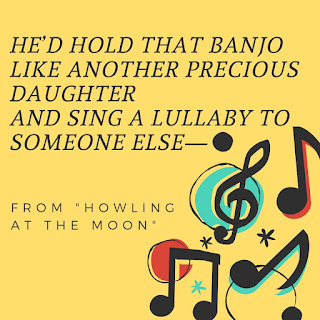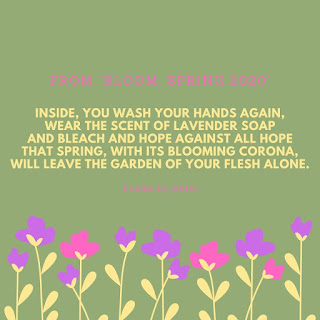Napo 30
I made it! Pandemics seem like a good time to write, and I'm glad I muddled through, even and especially when I felt the malaise hit. The malaise hits today, but I wrote in response to a prompt anyway and told myself to work on this for at least an hour. I have the time. I have this gift. I will not always have such a precious thing as time. Today's prompt was to write about something that returns. Fireflies return each summer. But maybe not so much. We can't take beauty and love and goodness for granted. Another thing I'm thinking about is periods. I might, instead of using the fireflies as a metaphor for love, use them as a metaphor for menstruation in future drafts or in a different poem. Of Love and Fireflies Once, I loved you like a firefly— Remember how they used to make the fields Effulgent like the midnight sky once was? When this was orange fields and the heart Grew wild like the monte? Remember how Each year those lightning bugs returned












